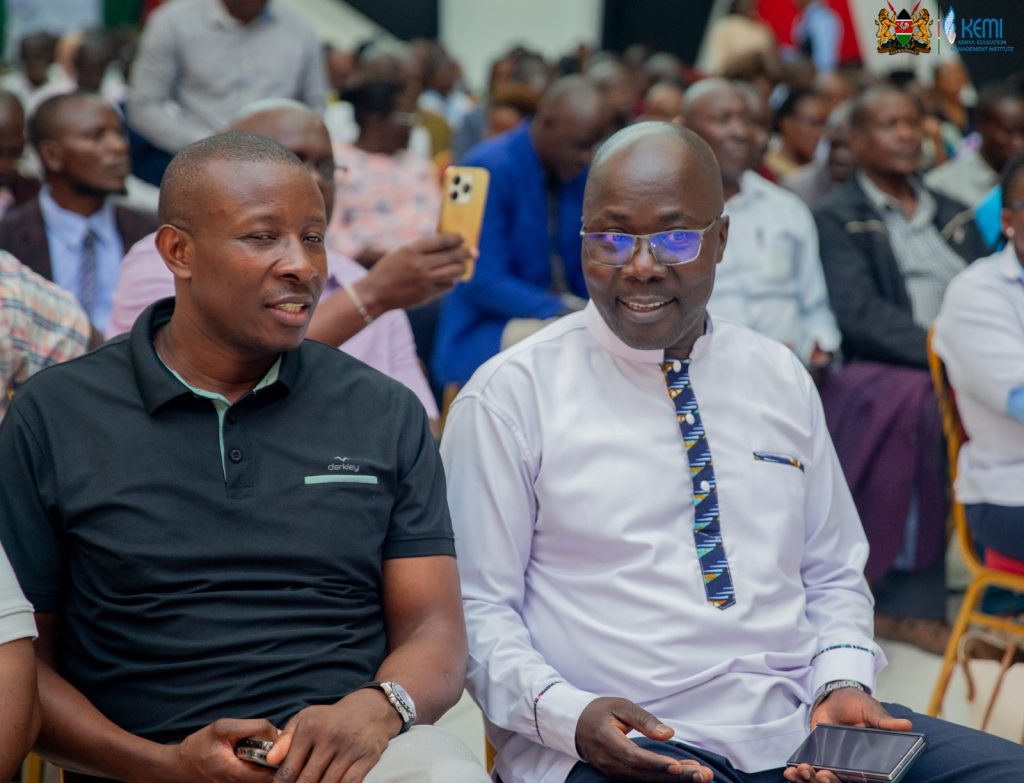- Kemi_Edu
- 0
Kisumu County hosted the third edition of the Elimu Mashinani forum a nationwide dialogue platform designed to bring education policy closer to the people. The initiative fosters inclusive discussions on contemporary education issues, engaging stakeholders across all 47 counties to ensure grassroots voices influence the future of learning in Kenya.
Organized by the Ministry of Education in collaboration with the Kenya Education Management Institute (KEMI) and Citizen TV, the program enables teachers, students, parents, and community leaders to actively participate in shaping education policy. It strengthens trust between the government and education stakeholders by incorporating citizens’ perspectives into national dialogue.
The panel featured Amb. Prof. Julius Bitok, Principal Secretary for Basic Education, and Dr. Beatrice Inyangala, Principal Secretary for Higher Education a clear demonstration of the national government’s commitment to listening to and co-creating solutions with grassroots stakeholders. Also attending the event were CEOs from Kenya Education Management Institute (KEMI), Kenya National Examinations Council (KNEC), Teachers Service Commission (TSC), Kenya Institute of Curriculum Development (KICD) and the County Commissioner, Kisumu County.
In his address, Amb. Prof. Julius Bitok commended Kisumu County for its impressive performance in national examinations.

The PS for Basic Education, Amb. Prof. Julius Bitok, the PS for Higher Education, Dr. Beatrice Muganda Inyangala, as panelists with Sam Gituku of Citizen TV as the moderator, at the Elimu Mashinani Forum at Kisumu County

CEO KEMI Dr. Maurice Odondo, chatting with a friend during a commercial break at the Elimu Mashina forum, Kisumu County.

Participants at the Elimu Mashinani forum, Kisumu County.
Stakeholders in Kisumu raised several concerns, including the challenges faced by learners with special needs. Participants highlighted significant gaps such as limited access to essential assistive devices like wheelchairs and the absence of clear transition pathways for learners with special needs between different education levels. Other issues raised included the ongoing lecturers’ strike that had disrupted learning in public universities for five weeks and questions surrounding the rollout of the Competency-Based Education (CBE) curriculum in senior schools.
In response, Amb. Prof. Julius Bitok reaffirmed the government’s commitment to promoting inclusive education and ensuring that ongoing reforms address the needs of all learners. He acknowledged the challenges within Special Needs Education (SNE) and emphasized the need to strengthen targeted interventions such as specialized teacher training, procurement of assistive devices, and adaptation of infrastructure.
He further underscored that Competency-Based Education (CBE) is one of the best education systems globally as it allows learners to showcase their talents and skills. He noted that 1.2 million learners are expected to transition from junior to senior school, assuring stakeholders that adequate plans have been made to ensure all learners secure placement. Regarding infrastructure, he added, “We have started rolling out 1,600 laboratories across the country.”
Addressing the issue of the lecturers’ strike, Dr. Beatrice Inyangala, Principal Secretary for Higher Education, explained that a technical team had been established to determine the exact amount owed to university lecturers under the collective bargaining agreements (CBAs). She urged the lecturers to call off the strike to allow learning to resume.
As Elimu Mashinani continues its journey across all 47 counties, the Ministry of Education remains committed to deepening grassroots engagement in education reforms, ensuring that policy development is inclusive, participatory, and reflective of the realities faced by communities across Kenya.


